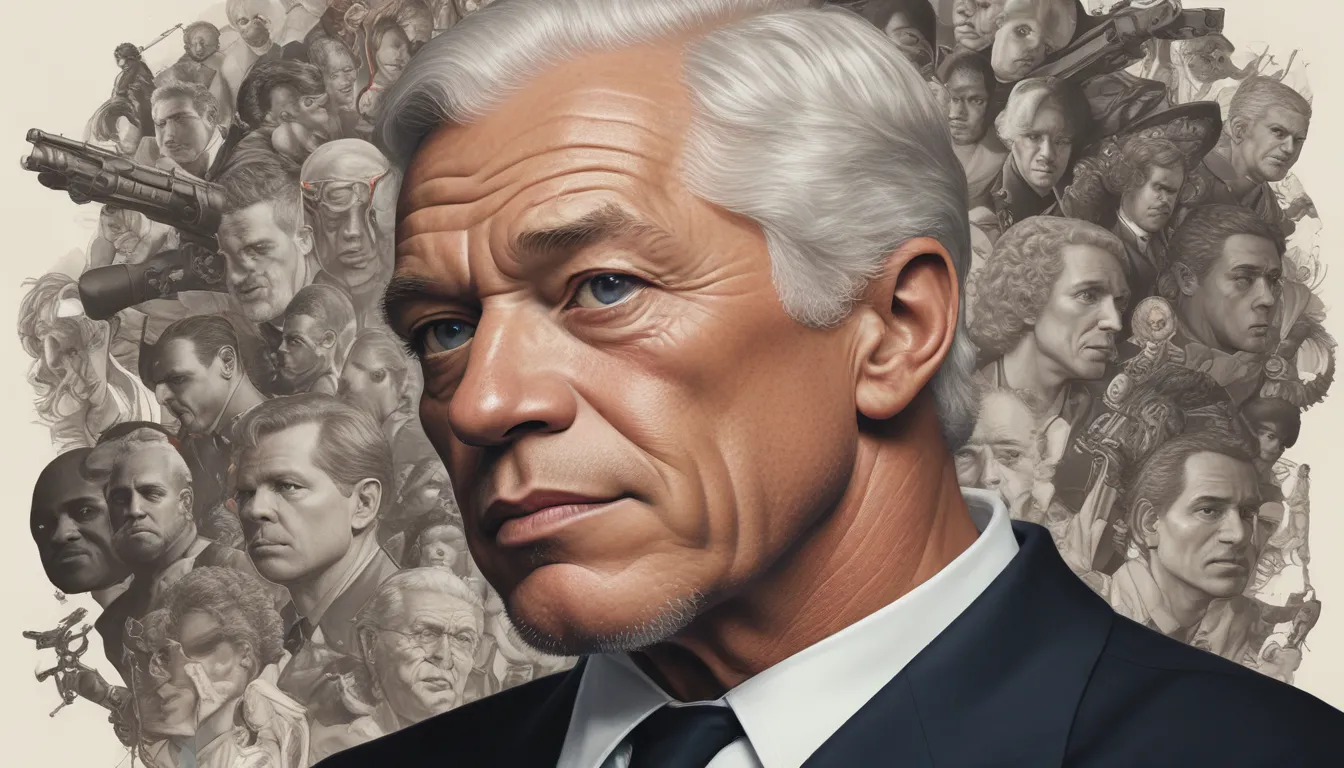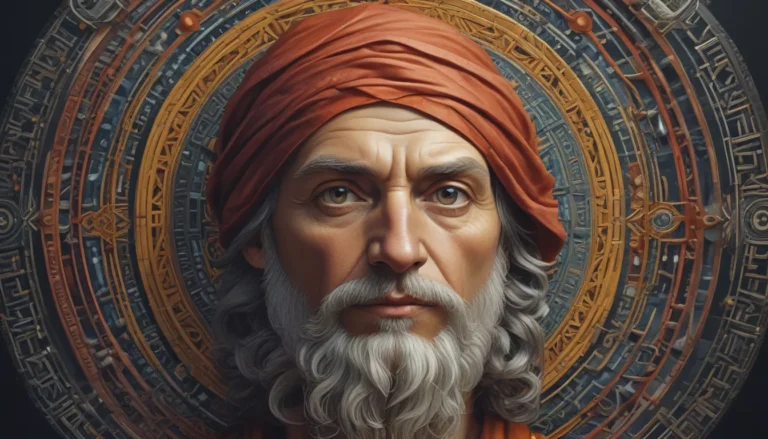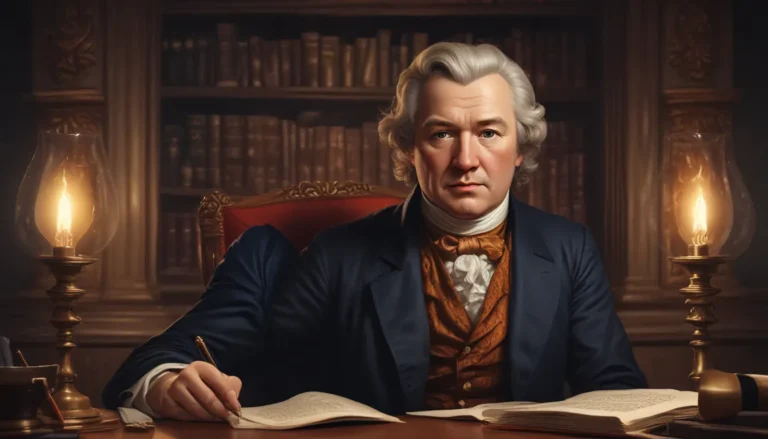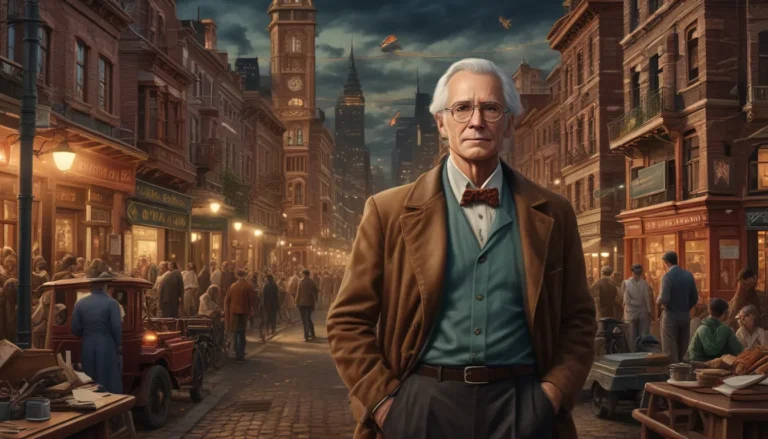The images in our articles may not match the content exactly. They are used to grab your attention, not to show the exact details in the text. The images complement the text but do not replace it.
If you’ve ever been intrigued by the enigmatic figure of Charles Taylor, the former President of Liberia, you’re not alone. His name has been at the center of headlines and controversies for decades, sparking both admiration and controversy. In this article, we will take a deep dive into 12 astounding facts about Charles Taylor, shedding light on his significant achievements and troubling controversies that have left a lasting mark on Liberia and the international community.
Unveiling the Complex Legacy of Charles Taylor
Let’s start by understanding the key takeaways from Charles Taylor’s tumultuous journey:
- Charles Taylor, former President of Liberia, made history by being the first sitting African head of state to be convicted of war crimes and crimes against humanity. This set a crucial precedent for holding high-ranking leaders accountable for their actions.
- His involvement in conflicts and illegal diamond trade underscored the dire need for justice and accountability in Africa, emphasizing the importance of addressing root causes of conflicts.
The Rise and Fall of Charles Taylor
Charles Taylor: A Former President of Liberia
From 1997 to 2003, Charles Taylor wielded power as the President of Liberia. However, his legacy was marred by controversies and atrocities that ultimately led to his indictment for war crimes and crimes against humanity.
Involvement in the Sierra Leone Civil War
Taylor’s support of rebel groups in Sierra Leone played a pivotal role in fueling the brutal and prolonged Sierra Leone Civil War. The repercussions of his actions resulted in widespread atrocities committed against innocent civilians.
Indictment by the Special Court for Sierra Leone
The Special Court for Sierra Leone didn’t mince words when it indicted Charles Taylor on multiple charges, including war crimes, crimes against humanity, and violations of international humanitarian law. This marked a turning point in his tumultuous journey.
The Conviction and Sentencing of Charles Taylor
Trailblazer in Conviction
In a historic moment in 2012, Charles Taylor became the first African leader to be convicted of war crimes and crimes against humanity by an international court. This milestone event set a precedent for accountability and justice for high-ranking officials.
The Man Behind the Nickname “Papay”
Known affectionately as “Papay” by his supporters, Charles Taylor’s charismatic and paternalistic leadership style resonated with those who followed him, despite the controversies surrounding his reign.
Involvement in Ethnic Cleansing
Taylor’s presidency was marred by a brutal campaign of ethnic cleansing in Liberia, where specific ethnic groups were targeted and subjected to violence in a bid to maintain his grip on power. The ensuing conflict claimed the lives of thousands of innocent civilians.
Capture, Trial, and Legacy of Charles Taylor
Association with Blood Diamonds
Charles Taylor’s ties to the illegal diamond trade, particularly in Sierra Leone, drew international attention. The infamous term “blood diamonds” became synonymous with diamonds mined in war zones to fund armed conflicts against governments.
Trial and Precedent Setting
After evading capture for years, Charles Taylor was eventually apprehended in Nigeria and brought to trial at The Hague, Netherlands. His conviction not only held him accountable but also set a crucial precedent for justice in conflicts.
Legacy and Impact
Charles Taylor’s sentencing to a hefty 50 years in prison highlighted his notoriety as one of Africa’s most infamous warlords, responsible for a trail of destruction and instability in his wake. His legacy serves as a stark reminder of the consequences of unchecked power.
Lessons Learned and Moving Forward
Importance of Justice and Accountability
The trial of Charles Taylor underscored the critical need for justice and accountability in Africa, emphasizing the imperative to address the root causes of conflicts and prevent impunity for those responsible for grave human rights violations.
In conclusion, Charles Taylor’s life was a tapestry of astounding facts that continue to intrigue and appall audiences worldwide. Despite the controversies that shroud his legacy, understanding the complex nature of his reign is essential to prevent similar situations from unfolding in the future.
Frequently Asked Questions about Charles Taylor
-
Who is Charles Taylor?
Charles Taylor is a former Liberian politician and war criminal who served as the President of Liberia from 1997 to 2003, eventually being convicted of war crimes and crimes against humanity. -
What were some of Charles Taylor’s accomplishments?
While in power, Taylor implemented reforms to improve Liberia’s infrastructure and economy. He also played a role in ending the civil war in Sierra Leone, although his achievements are overshadowed by his involvement in crimes. -
Why is Charles Taylor considered astounding?
Taylor’s rise to power and influence, coupled with his ability to manipulate and control, make him an astounding figure. His capacity for deception and coercion set him apart as an enigmatic leader. -
What were the charges against Charles Taylor?
Charles Taylor faced charges of crimes against humanity, including murder, rape, and using child soldiers. He was also implicated in supporting rebel groups in neighboring countries. -
What was the outcome of Charles Taylor’s trial?
In 2012, Charles Taylor was found guilty and sentenced to 50 years in prison for his involvement in war crimes and human rights abuses. He continues to serve his sentence in a UK prison. -
What is Charles Taylor’s legacy?
The legacy of Charles Taylor is a contentious one, with some viewing him as a stabilizing force in Liberia while others see him as a ruthless warlord. The debate surrounding his legacy remains a topic of discussion among scholars and policymakers. -
What lessons can we learn from Charles Taylor’s story?
Charles Taylor’s story serves as a poignant reminder of the necessity of good governance, transparency, and accountability. It highlights the importance of preventing individuals with questionable motives from attaining positions of power and stresses the significance of justice and accountability in post-conflict societies.
If you’re eager to explore more about Charles Taylor and his complex legacy, dive deeper into the world of literary nonfiction with the Charles Taylor Prize, a celebration of exceptional works in this genre. For a concise overview of Taylor’s life, our article on eight astonishing facts about this controversial figure might pique your interest. And if you’re hungry for more, our piece covering twelve captivating facts delves further into his rise to power and eventual downfall.
Wrapping Up Our Exploration
As you navigate the enigmatic world of Charles Taylor, remember that each fact shared is a product of real users like you, contributing diverse insights and information. Our commitment to delivering accurate and engaging content ensures that you can trust the information you discover with us.
So, as you ponder the astounding facts about Charles Taylor and his complex legacy, rest assured that our dedication to quality and authenticity remains steadfast. Join us in unraveling the intricate web of history and learn alongside a community driven by a passion for discovery and understanding.






